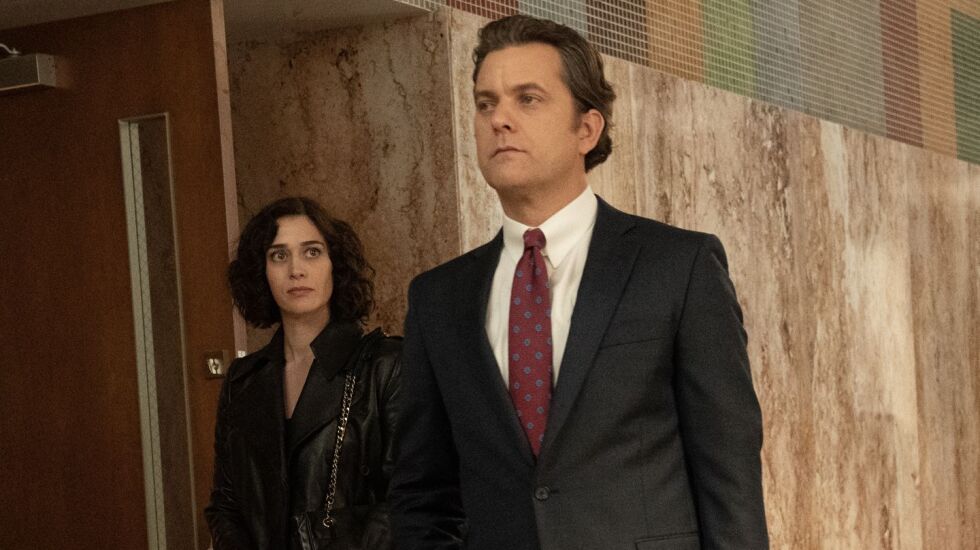
Two questions I get all the time:
1. Have you ever walked out of a movie?
2. When you review a new TV series, do you watch every episode?
No, I’ve never walked out of a screening, as I feel I owe it to the audience and to the people who made the film to stay until the end.
As for TV series: I’ll watch every episode provided to me before writing my review. In some cases, the streaming service or network will send just a handful of episodes, and I’ll note that in the review.
With limited series intended for just a one-season run, such as the recent shows “Love & Death,” “The Last Thing He Told Me” and the brilliant “Beef,” I have access to the entire run and am very grateful for that, as the payoff is so important.
This brings us to the Paramount+ reboot of “Fatal Attraction,” which is a prime example of a series that is impressively staged, well-acted and initially provocative — but falls apart like a Jenga tower in an earthquake in the stretch run, wrapping up the main mystery in an arbitrary fashion and, even worse, dropping a final twist on us that comes from so far out of the blue it must have needed a connecting flight. I can’t recall the last time the final moments of a series left me feeling so empty and irritated.
It’s nearly impossible to overstate the popular culture impact of Adrian Lyne’s “Fatal Attraction,” which was the highest-grossing film of 1987 worldwide, garnered six Oscar nominations, created signature moments such as a certain boiled bunny and “I’m not going to be IGNORED, Dan” and gave us one of the most memorable villains of all time in Glenn Close’s Alex Forrest.
Over the years, there have been countless essays and discussions about the film’s depiction of mental illness and the demonization of Alex.
But, while the “Fatal Attraction” reboot provides a deep dive into Alex’s past and is more sympathetic in its treatment of mental health, this is far from being any kind of feminist retake. If anything, there are certain plot developments that only serve to reinforce the stereotype of the love-crazed, obsessed female who will let nothing come between her and the object of her delusional fantasies.
With the plot jumping along multiple timelines in a dizzying fashion and depicting certain incidents from different points of view, this eight-episode version of “Fatal Attraction” moves the setting from New York City to Los Angeles, kicking off with a scene in which Joshua Jackson’s Dan Gallagher meets with the parole board after serving 15 years for the murder of Alex Forrest. Upon gaining his freedom, Dan seeks to reconnect with his now twentysomething daughter Ellen (Alyssa Jirrels) while he attempts to prove he didn’t commit the crime.
In the primary flashback sequences set in the late 2000s (we also occasionally go back even further in time), we join Dan’s life when it seems as if he’s on a golden ride. Dan is an assistant district attorney on the cusp of getting a judgeship, is married to the smart and beautiful Beth (Amanda Peet) and has a wonderful daughter named Ellen (played by Vivien Lyra Blair as a child).
Quickly, though, we see cracks in the veneer. Dan is passed over for the appointment, gets drunk and crashes his car, calls in some favors to save his career — and then recklessly and foolishly has an affair with Alex (Lizzy Caplan), a victim services advocate in the D.A.’s office. (Oh, the heavy irony.)
Jackson and Caplan are fine actors, but they capture none of the erotic electricity of Michael Douglas and Glenn Close in the original. This is one of the least sexy sexy thrillers in recent memory.
We get multiple callbacks to the original, from a wickedly funny appearance by a pet rabbit to Caplan doing her own chilling spin on the “IGNORED” line to a cheeky reference to crimes in bathtubs to a reminder of the relationship between acid and cars, as we bounce back and forth between timelines. We see how Dan’s hubris left him with basically one friend in present-day, the world-weary crimes investigator Mike (played by the invaluable Toby Huss), and we follow Ellen’s journey as a college student writing her thesis on Carl Jung and his relationship with his mistress and colleague Toni Wolff, who wrote about the four aspects of the feminist psyche. (Subtlety is not much of a factor in this series.)
We also see a number of sequences filling in Alex’s backstory (she had an awful childhood, and is still desperate for the approval of her terrible father) and bear witness to multiple instances of her becoming obsessed with men even before she latches onto Dan.
Despite the fine performances and the first-rate production values, “Fatal Attraction” rides completely off the rails in those final episodes, leaving us with nothing more than the urge to revisit the original to see how it holds up and to completely forget about this misfire.







